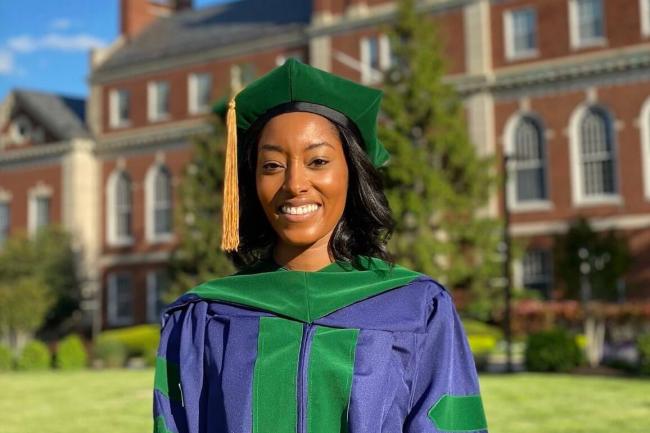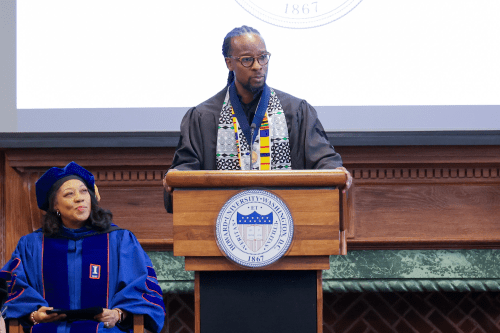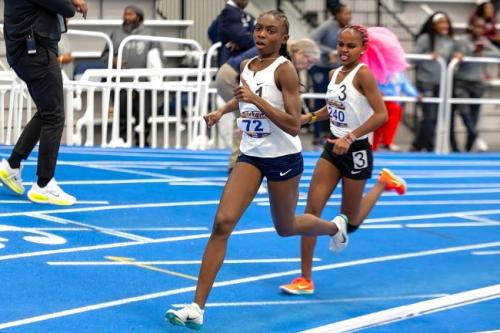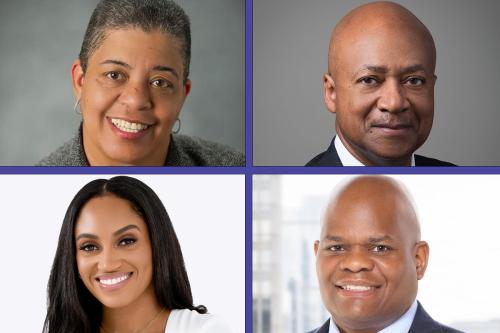WASHINGTON (May 9, 2020)– Karra Maniér grew up in Los Angeles witnessing how health care inequality can impact a community and then dreamed of one day becoming a doctor. On Saturday, the 29-year-old will not only graduate with a medical degree from Howard University, but is also set to return to California to train as an ER doctor amid the COVID-19 crisis.
“Obviously this is a challenging time to be going into emergency medicine, but this is what attracted me to the specialty – being on the frontlines and providing care for patients irrespective of their backgrounds or socioeconomic status,” said Maniér, who matched into the emergency medicine residency program at the University of Southern California in March.
The Howard University College of Medicine announced 16 graduates matching into emergency programs for residencies – more than any other year. In addition, 10 soon-to-be Howard-educated doctors matched into family medicine, and eight into internal medicine – other hospital residency programs seen as critical in the fight against the coronavirus. In total, the College of Medicine conferred 102 degrees to the class of 2020.
“We’re proud the College of Medicine has more graduates matching into emergency medicine than any other year,” said Hugh E. Mighty, M.D., dean of the College of Medicine. “This young cadre of physicians will be essential contributors in combating the COVID-19 pandemic and delivering culturally competent care to the most vulnerable population,”
Communities of color in the United States have been hard hit by the coronavirus. While African Americans make up a smaller percentage of the U.S. population, they make up a disproportionately large percentage of those dying from the disease. African Americans generally suffer more conditions such as hyper-tension, diabetes, heart disease, or asthma, diseases that can make COVID-19 deadly for individuals.
Forbes recently profiled Maniér along with other women of color who have recently matched with residency programs where medical graduates will train for the next three to seven years. Maniér said her contribution will be to make sure her voice is heard in the emergency department.
“I am going to be advocating for the patients who are disproportionately affected,” Maniér said. “Young Black doctors will have a big impact coming into the field at this time given the shortage of underrepresented minorities in medicine.”
Maniér arrived on Howard’s campus after graduating from Spelman College. She recalled the obstacles along the way of becoming a doctor: Taking the medical school entry exam, the MCAT, three times. The detour of a post-baccalaureate program to bolster her science GPA. Adjusting to the volume and rigor of medical school curriculum. All of it paid off.
“Right now it feels surreal because I dreamed of this since I was a child,” she said. “To see it now come to fruition, I can’t believe it.”
Maniér said the Howard University College of Medicine provided her with the unceasing professional and personal support. She said she found inspiration in seeing Black female physicians as deans and department chairs and in Howard University Hospital as working physicians.
“I received a great amount of support from mentors who took all the time that I needed to help me get through whatever challenge I was facing – that speaks a lot to the culture and familial atmosphere at Howard,” Maniér said. “They understand the struggle that students face.”
Maniér said she was drawn to the USC program because of its mission of caring for underserved communities was similar to Howard University’s mission.
“As young Black doctors we can bring our experiences, our perspective, and ideas on how to equalize care for our communities,” Maniér said. “I’m excited to start working, I think it is a great opportunity to contribute to the field and also fulfill the needs of our country.”
###
About Howard University
Founded in 1867, Howard University is a private, research university that is comprised of 13 schools and colleges. Students pursue studies in more than 120 areas leading to undergraduate, graduate and professional degrees. The University operates with a commitment to Excellence in Truth and Service and has produced one Schwarzman Scholar, three Marshall Scholars, four Rhodes Scholars, 11 Truman Scholars, 25 Pickering Fellows and more than 70 Fulbright Scholars. Howard also produces more on-campus African-American Ph.D. recipients than any other university in the United States. For more information on Howard University, visit www.howard.edu.
For media inquiries contact: Sholnn Freeman, sholnn.freeman@howard.edu





